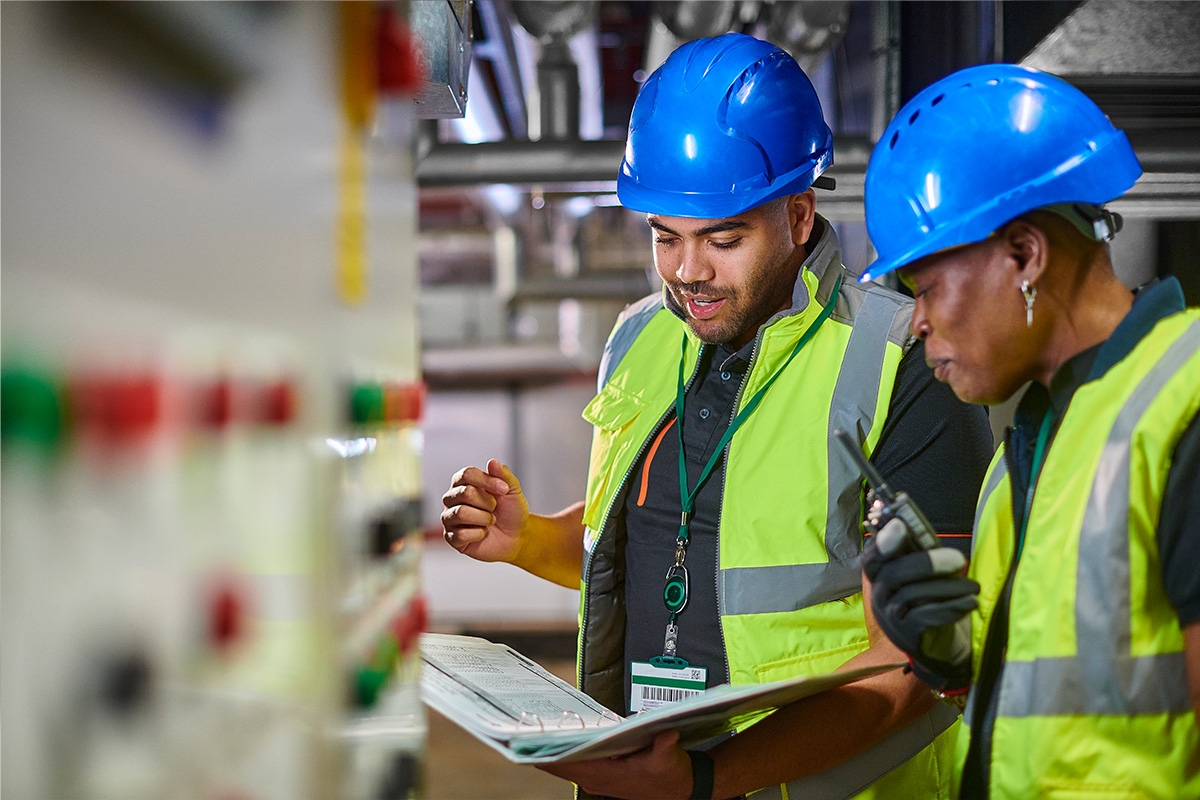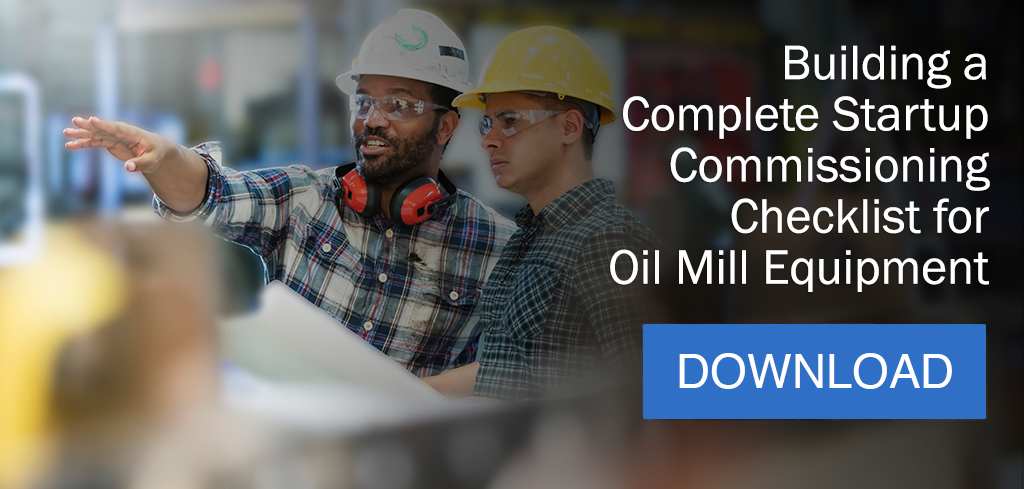
We have previously discussed startup commissioning, the methodical approach to installing, testing, and optimizing new pieces of equipment in a manufacturing line. This process ensures equipment operates as designed, preventing costly failures and downtime. It verifies quality, meets regulatory requirements, improves safety, and supports system integration. Commissioning leads to fewer errors, safer operations, and better ROI.
At Anderson, we’ve started up over 12,000 pieces of equipment for 1000+ businesses. In that time, we’ve seen the good, bad, and ugly of equipment startups. Many organizations don’t have realistic expectations. As such, we’ve compiled a list of insights to help manage expectations so you can avoid some of the missteps we’ve seen over the years to help get your new oil mill equipment up, running, and profitable in no time.
1. Set realistic timeline expectations
While it can certainly be tempting to rush a piece of machinery into production to see ROI as soon as possible, in reality, skipping commissioning and pre-commissioning steps or altogether rarely gets the desired results. Instead, production comes to a standstill because of a simple oversight, such as a bad wire or blocked vent.
Each piece of machinery is different, but you should plan for two to five days to commission a new piece of equipment and four to six weeks to get a whole new plant or division online. We strongly recommend scheduling a meeting with Anderson to plan the startup well in advance, allowing both parties to prepare appropriately.
2. Don’t skip pre-commissioning
The machine startup process is a lot like flying a commercial airplane. You don’t just skip to being 30,000 feet in the air. There’s a whole procedure to get airborne. If takeoff is like commissioning, then pre-commissioning is the pre-flight checklist.
Pre-commissioning confirms proper installation and that no damage was sustained during transport. You work methodically to ensure that all systems are correctly configured. The motor rotational direction has been verified, and the instrumentation calibrated. All feedback, feedforward, and control loop logics within the control system have undergone rigorous testing.
Another way to think about pre-commissioning is that it is checking individual components of a new piece of equipment without a load. Commissioning, in contrast, is more about confirming that the new machine works as a system and integrates well with other parts of your production line.
3. Things will go wrong
Not everything goes smoothly right away with new machinery. Every system has kinks to work out. The important thing is to plan time to troubleshoot. It may take an entire month to work out any bugs if it’s a full system. And that’s not including any of the initial testing. For a machine, plan up to a week of creating off-spec products and having challenges.
Also read: Minimizing Oil Mill Operator Error in Your Soybean Processing Plant
4. Communicate
Communicating clearly with every party involved—the vendor, management, operators, and third-party agents—is essential. We recommend that internal teams maintain daily huddles and action item lists to track and resolve problems. Additionally, proper documentation is essential to ensure that steps are not skipped and to speed up troubleshooting efforts.
5. Have extra staff on hand
During the critical initial startup phase, the presence of additional personnel and the availability of the correct tools are absolutely vital. This proactive approach ensures potential equipment jams can be addressed and cleared with maximum speed and efficiency.
Having a skilled team on hand allows for immediate adjustments to machinery and any necessary procedures to be performed without delay. This streamlined response is essential to maintaining operational flow, minimizing downtime, and preventing minor issues from escalating into significant disruptions. A well-prepared and adequately staffed team equipped with the right instruments can significantly contribute to a smoother and more successful startup, ultimately leading to improved productivity and reduced operational stress.
6. Complete all checklists
Skipping steps to save time almost always leads to trouble. Completing pre-commissioning checks, including dry runs and verifying proper instrument readings and control system functionality, is crucial. Electrical and control issues are typical “showstoppers”, often requiring significant debugging to ensure correct communication and operation.
Thoroughly analyze and mitigate safety risks through HAZOP, which identifies equipment hazards, potential failures, and mitigation strategies. HAZOP is crucial for new plants or equipment to ensure all safety risks are identified and protective gear is in place. Additionally, arrange for lab testing of product samples during startup, either on-site or with a pre-arranged third-party lab, to verify machine performance and analyze factors like residual fat, moisture, protein, or fiber.
Need inspiration for creating your detailed commissioning checklist? Read our new eBook that illustrates the process steps in detail:
7. Plan for a gradual ramp-up
Equipment startup should be a gradual and carefully monitored climb, just like a plane reaching cruising altitude. New equipment often requires a break-in period, typically about a week before peak performance. Expect some initial off-spec products and challenges during this time.
Once your new machine is operational, strive for an uninterrupted, 24/7 run. Ideally, you’ll have multiple shifts ready to ensure overnight operation during startup. Many issues may not surface during short runs (1-8 hours); it often takes 24-48 hours of continuous runtime to uncover specific problems.
8. Choose your vendor carefully
While selecting the right oil mill equipment for your operation is essential, choosing an experienced vendor you can trust is just as important. With over 12,000 pieces of equipment commissioned for over 1,000 plant installations across 100+ countries, processing 80+ oilseed varieties, our experts have encountered every challenge and know how to resolve issues to get your plant operational.
Anderson’s support extends beyond equipment commissioning. We proudly back our products with comprehensive training and service for the entire lifespan of our machines. These machines are built to last, often outliving you and your team; in fact, we have installations from the 1920s that are still in operation today.
Questions?
